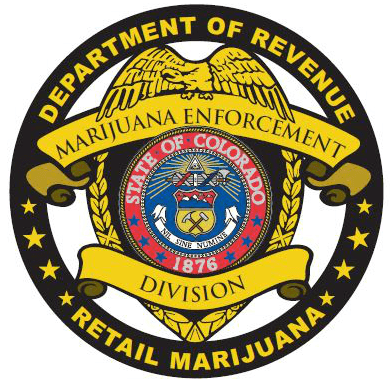Firm Guide: Colorado Cannabis Licensing

Among the country’s first states to enact marijuana-friendly legislation, Colorado legalized medical marijuana via the passage of Amendment 20 in 2000 and subsequently legalized recreational (retail) marijuana via the passage of Amendment 64 in 2012.
Due to its robust implementation of these amendments, Colorado has been at the center of the burgeoning national marijuana industry. Since 2014, the state has amassed $1.21 billion in tax revenue generated from marijuana, with the marijuana industry totaling $7.79 billion in sales between 2014 and 2019.1
Although to an outsider it may seem that all of Colorado is engrossed in marijuana, local jurisdictions have the right to control which, if any, marijuana businesses are permitted. This framework creates a varied legal landscape across the state. All prospective industry participants must verify if, and which, medical and/or retail marijuana businesses are permitted in a locality being considered for business operations.
In addition to applicable local authorities, the Colorado Department of Revenue Marijuana Enforcement Division (“MED”) governs the industry statewide. The MED enacts and enforces statewide commercial marijuana regulations, as well as provides compliance guidelines and other relevant materials to the industry.
Business License Types
Each business is authorized to engage only in the type of activity for which it holds a license. Subject to a few exceptions, as a general rule, a business may hold multiple licenses, including multiple license types.
Cultivation
Medical Marijuana Cultivation Facility License – Permits the cultivation, and certain limited processing, of medical marijuana for wholesale.
Marijuana Research and Development Facility License – Permits cultivation and processing of medical marijuana strictly for research purposes.
Retail Marijuana Cultivation Facility License – Permits the cultivation, and certain limited processing, of retail marijuana for wholesale.
Accelerator Cultivator License – A social equity license that permits, in accordance with the accelerator program, the exercise of the rights of a Retail Marijuana Cultivation Facility on the premises of an Accelerator-Endorsed Retail Marijuana Cultivation Facility Licensee.
Dispensary
Medical Marijuana Store License – Permits retail sales of medical marijuana to medical marijuana patients and caregivers.
Retail Marijuana Store License – Permits retail sales of marijuana to adults twenty-one years of age and older.
Accelerator Store License – A social equity license that permits, in accordance with the accelerator program, the exercise of the rights of a Retail Marijuana Store on the premises of an Accelerator-Endorsed Retail Marijuana Store Licensee.
Hospitality
Marijuana Hospitality Business License – Permits on-site consumption of marijuana by patrons on premises that can be mobile or immobile.
Retail Marijuana Hospitality and Sales Business License – Permits both limited retail sales and on-site consumption of retail (but not medical) marijuana by patrons on premises that cannot be mobile.
Operator
Medical Marijuana Business Operator License – Permits the holder to operate, in limited or in entire fashion, one or more medical marijuana business licenses on behalf of one or more medical marijuana business license holders.
Retail Marijuana Operator License – Permits the holder to operate, in limited or in entire fashion, one or more retail marijuana business licenses on behalf of one or more retail marijuana business license holders.
Product Manufacturing
Medical Marijuana Products Manufacturer License – Permits the production of medical marijuana-infused products, such as edibles, concentrates, or tinctures.
Retail Marijuana Products Manufacturer License – Permits the production of retail marijuana-infused products, such as edibles, concentrates, or tinctures.
Accelerator Manufacturer License – A social equity license that permits, in accordance with the accelerator program, the exercise of the rights of a Retail Marijuana Products Manufacturer on the premises of an Accelerator-Endorsed Retail Marijuana Products Manufacturer Licensee.
Testing Facility
Medical Marijuana Testing Facility License – A laboratory permitted to conduct testing, for both potency and contaminants, and research on medical marijuana.
Retail Marijuana Testing Facility License – An entity permitted to conduct testing, for both potency and contaminants, on retail marijuana.
Transportation
Medical Marijuana Transporter License – Permits the provision of transportation and temporary storage services to licensed Medical Marijuana Businesses.
Retail Marijuana Transporter License – Permits the provision of transportation and temporary storage services to licensed Retail Marijuana Businesses.
Eligible license holders may also apply for additional permits, including medical marijuana delivery permits, off-premises storage permits, centralized distribution permits, research and development co-location permits, and transition permits (allowing operation at two separate locations while undergoing a change of location).
Licensing Fees

The MED provides a current list of fees for marijuana business applications and licenses on its website. Initial business application and license fees range from $2,500 to $7,000, depending on the license type. Licensees must also pay yearly renewal application and licensing fees, with license renewal fees for cultivation facilities having a tiered increase based upon the number of plants grown.
Colorado’s recently passed House Bill 20-1424 (“HB20-1424”) provides that social equity applicants for Accelerator licenses qualify for a reduction in application and licensing fees; however, the exact figures have yet to be determined.
In addition to state licensing fees, local jurisdictions may impose their own local licensing fees. In certain jurisdictions, local fees will even exceed the state fees.
Social Equity
Studies in recent years have confirmed a common concern in the industry – that marijuana business ownership is severely lacking in diversity.2
Although it is likely to conform with such studies, diversity, and inclusivity data specific to Colorado marijuana businesses remains unclear because Colorado has not been collecting diversity and inclusivity data in connection with its current application procedures. MED license applicants are not required to provide their race or ethnicity while applying,3 making demographic analysis difficult.
Recently, however, Colorado has made several efforts to support further marijuana business engagement by those disproportionately affected by the war on drugs. In May of 2019, the state legislature passed Senate Bill 19-224, creating the first accelerator cultivator and accelerator manufacturer licenses.
While Colorado’s accelerator program officially began in July 2020, lawmakers have already made further changes to expand accelerator licensing eligibility through HB20-1424. HB20-1424 extends the start of the accelerator program to January 1, 2021, and defines eligibility under one of three categories:
- Applicants who have lived in an Office of Economic Development and International Trade designated opportunity zone or disproportionately impacted area for at least fifteen years between 1980 and 2010.
- Applicants who have direct family with a previous arrest and/or conviction related to a marijuana offense.
- Applicants whose recent household income falls below a level established by the MED.
Individuals otherwise eligible for a social equity license may not be rejected on the sole basis of a felony marijuana conviction within the previous three years. Moreover, in October 2020, Colorado Governor Jared Polis issued pardons to over 2,000 individuals that had been convicted of misdemeanor marijuana offenses up to possession of two ounces of marijuana

Residency Requirements
Until recently, Colorado imposed strict residency requirements on owners and employees of marijuana businesses.
In March of 2020, however, legislators passed House Bill 20-1080 (“HB20-1080”) which removed nearly all of the previous residency mandates, except that (1) a social equity license applicant must be a Colorado resident (2) an owner exercising the rights of an employee of a marijuana business must be a Colorado resident.
Market Barriers
Although Colorado has removed nearly all of its residency restrictions and has sought to engage underrepresented populations through its social equity licensing programs, certain market barriers still remain.
As investment from outside the state has surged into the Colorado marijuana industry—doubly so with HB 20-1080 now allowing publicly traded companies to participate in the industry, some are concerned that industry consolidation will further reduce opportunities for participation at the ownership level. Even without regard to outside investment, the relative maturity of Colorado’s m industry itself presents significant obstacles as newcomers face established competition. Privately held companies have already initiated various mergers and acquisitions across the state.4
Although its history is already robust and it continues to experience certain growing pains, Colorado’s marijuana industry continues to have a bright future. New license and permit types, new investment mechanisms, and new opportunities for social equity involvement all should help the industry to continue to prosper. If you have any questions on Colorado’s regulated marijuana industry or how to get involved, please contact our team.
- Ricciardi, Tiney. “Colorado Marijuana Sales Hit a Record $1.75 Billion in 2019.” The Denver Post. MediaNews Group, Inc., February 18, 2020. https://www.denverpost.com/2020/02/18/colorado-marijuana-sales-2019/
- McVey, Eli. “Chart: Percentage of Cannabis Business Owners and Founders by Race.” Marijuana Business Daily. Marijuana Business Daily, September 14, 2017. https://mjbizdaily.com/chart-19-cannabis-businesses-owned-founded-racial-minorities/
- Ricciardi, Tiney. “What Is Social Equity in Colorado’s Cannabis Industry? Regulators Look to Level the Playing Field for Marginalized Communities.” The Denver Post. MediaNews Group, Inc., January 30, 2020. https://www.denverpost.com/2020/01/30/social-equity-colorado-cannabis/
- Mitchell, Thomas. “Denver Marijuana Business Owners Ready for the Challenges of Big Money.” Westword. Denver Westword, LLC., November 8, 2019. https://www.westword.com/marijuana/denver-marijuana-business-owners-welcome-the-challenge-of-public-companies-and-big-money-11543285
Authors: Jeff Wilson, Nadav Aschner
The information in this blog post (the “Blog” or “Post”) is provided as news and/or commentary for general informational purposes only. The information herein does not, and shall never, constitute legal advice and therefore cannot be relied upon as a legal opinion. Nothing in this Blog constitutes attorney communication and is not privileged information. Nothing in the Post or on this website creates any kind of attorney-client relationship or privilege of any kind.
Originally published at https://therodmanlawgroup.com on November 4, 2020.
Hello rodmanlaw!
Congratulations! This post has been randomly Resteemed! For a chance to get more of your content resteemed join the Steem Engine Team